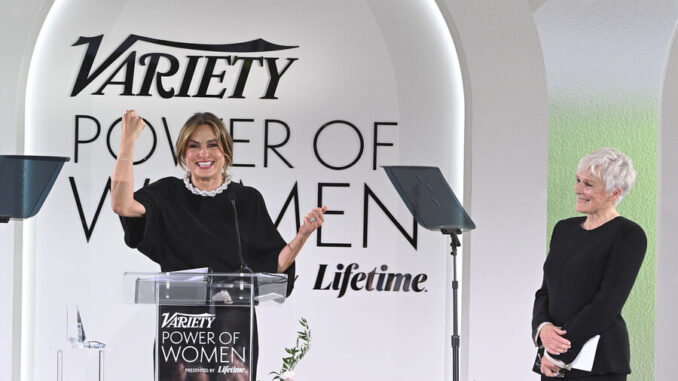
The Anatomy of a Shared Sob: When Mariska Hargitay's Olivia Benson Breaks the Levee
The headline, "Mariska Hargitay's Powerful New Episode Leaves SVU Viewers in Tears," isn't just clickbait; it's a testament to the singular alchemy that Law & Order: Special Victims Unit has perfected over a quarter-century. It speaks to the deep, almost familial bond viewers have forged with Olivia Benson, and to Mariska Hargitay's unparalleled ability to channel the raw, often unbearable weight of human suffering through her character. These tears aren't mere sentimentality; they are a complex, cathartic flood, a collective acknowledgment of trauma, resilience, and the enduring, often painful, fight for justice.
At the core of SVU's enduring power lies its unflinching commitment to giving voice to the voiceless. For over 25 years, Olivia Benson has been the compassionate North Star guiding viewers through the darkest corners of human depravity, a beacon of empathy in the face of unspeakable acts. She has witnessed countless horrors, absorbed the pain of survivors, and fought tirelessly for their vindication. This isn't just a job for her; it's a calling, born from her own traumatic origins and cemented by a lifetime dedicated to protecting the vulnerable. Hargitay embodies this history with every line, every pained expression, every tightly controlled tremor of emotion. She doesn't just play Olivia Benson; she is Olivia Benson, a living repository of the show's cumulative trauma and hope.
When an episode is described as "powerful" enough to elicit tears, it's rarely a standalone event. Instead, it’s typically a culmination, a moment when the show's long-form storytelling converges with Hargitay's profound understanding of her character. Such an episode might revisit a long-simmering personal trauma for Benson, perhaps a ghost from her past or a case that mirrors her own struggles with motherhood, loss, or survival. It might push her to her emotional breaking point, forcing her to confront the sheer futility of justice in a broken system, or the devastating toll her work has taken on her own soul. The "new episode" doesn't just present a case; it delves into Olivia's internal landscape, exposing the cracks in her formidable armor, the weariness behind her resolute gaze.
The tears that flow from viewers are not just for Olivia, though she is undeniably the emotional lightning rod. They are tears of recognition, of shared understanding, of a deep, resonant empathy for the countless real-life survivors whose stories SVU has mirrored. When Olivia's voice cracks, when her eyes well up with unshed tears, or when she allows herself a rare moment of vulnerability, viewers aren't just watching a character react; they are witnessing a visceral representation of universal pain. It's a testament to the show's authenticity, however dramatized, that it can tap into the collective subconscious of trauma, frustration, and the longing for healing. The tears are a release valve for our own anxieties about the world, a moment when the personal becomes profoundly communal.
Furthermore, these shared sobs are a tribute to Mariska Hargitay's extraordinary acting. She possesses a unique ability to convey layers of emotion with minimal fuss – a slight shift in her posture, a lingering glance, a single tear tracing a path down her cheek. Her performance isn't theatrical; it's deeply internal, allowing the audience to feel the tremor of her character's heart, the weight of her responsibilities. When Olivia is pushed to tears, it signifies a breach in her carefully constructed defenses, a moment so overwhelming that even she, the stoic and resilient captain, cannot contain her anguish. This vulnerability is what truly resonates, for it makes Olivia not just a hero, but profoundly, beautifully human.
In the end, "Mariska Hargitay's Powerful New Episode Leaves SVU Viewers in Tears" is more than a headline; it's a declaration of impact. It signifies that the show, and its iconic lead, continue to hold a mirror to society's darkest corners, not just to shock, but to heal, to validate, and to remind us that even in the face of unspeakable evil, empathy remains our most powerful weapon. The tears shed by viewers are not just fleeting emotions; they are a profound, shared testament to the enduring power of storytelling, the transformative nature of advocacy, and the indelible legacy of Olivia Benson.
